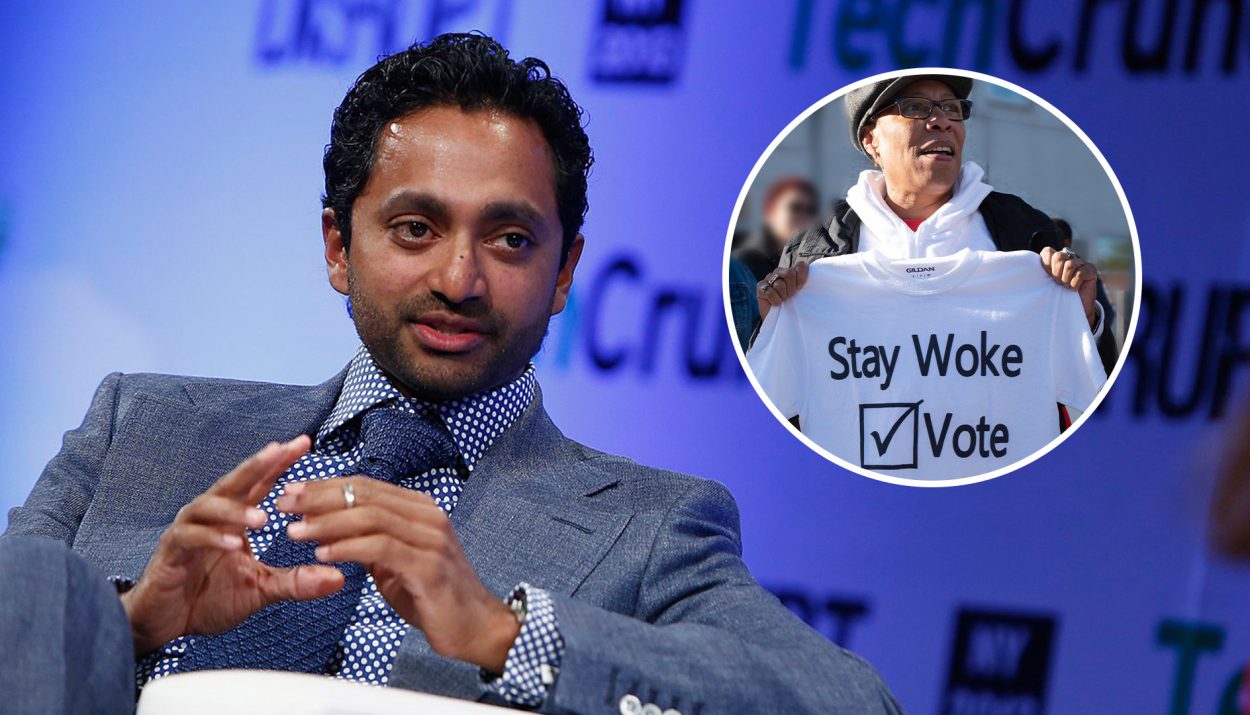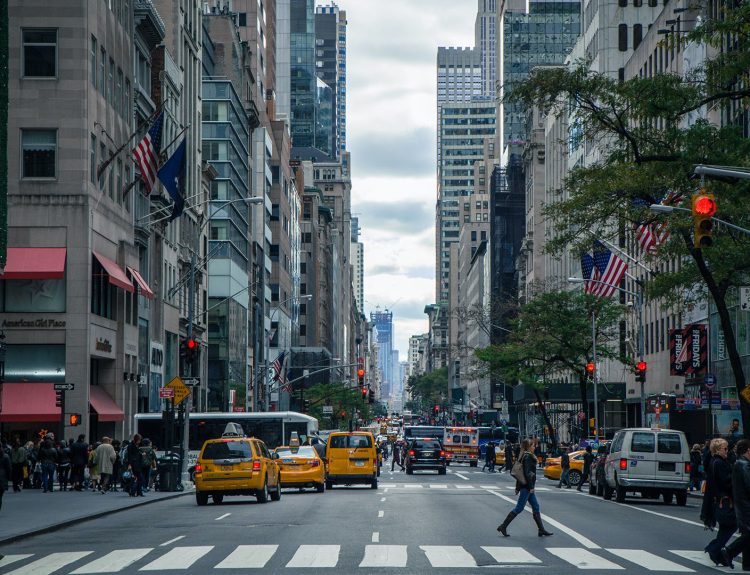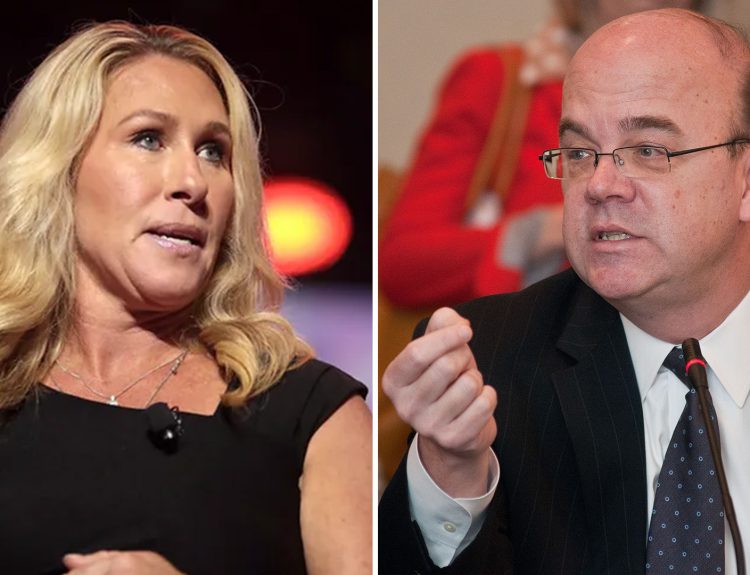The “Woke” culture war has reached a new level. Woke versus not has been a topic in politics, economics, and culture for years, but it seems that the ideology has finally started to trickle beyond the discourse, and is affecting real people’s lives. Specifically, it’s having an economic impact.
Federal Agencies Keeping Watch
This isn’t just a theory. Different measures of economic health are constantly monitored by federal and state agencies in order to make adjustments where they can. Things like inflation, the job market, and GDP are all kept under close watch.

Federal agencies are not the only ones keeping an eye on the economy and culture wars, though. Chamath Palihapitiya, the controversial CEO of Social Capital, is one of the more polarizing figures in the investing world, and he has recently had some inflammatory opinions on culture versus the economy.
Controversy Sells
Palihapitiya has made headlines in the past for his controversial comments on a variety of topics. Some of his greatest hits include stating that “nobody cares about the Uyghurs,” regarding the genocide occuring in China, and being sued for misleading investors.

Despite this controversial background, Palihapitiya has continued to make headlines for his comments and activities. The latest buzz around the billionaire has to do with the woke culture wars, and how he perceives them as affecting the economy.
It Started With a Bloomberg Article
In June of 2023, Palihapitiya tweeted a screenshot of a Bloomberg article that stated that six southern states had contributed more to gross GDP than the northeast corridor states for the first time in history. This would be an interesting development on its own, but it’s what Palihapitiya said about the screenshot that drove the conversation.
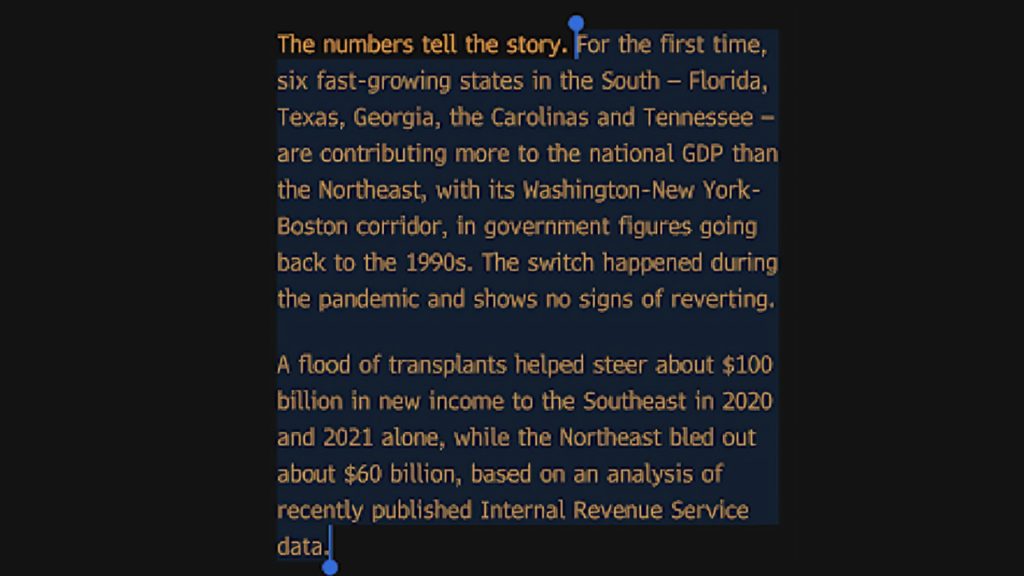
The tweet commentary read “Go woke, go broke.” The implication, of course, being that northern states – which are historically more politically liberal, socially conscious, and of a younger demographic than southern states – are suffering due to ongoing culture wars surrounding “wokeness.”
Commentary From The Twitterverse
The Twitterverse was quick to weigh in on the issue, including such individuals as fellow billionaire Mark Cuban. Some agreed with Palihapitiya that culture wars are forcing a mass migration out of larger northeastern cities, but others were less than convinced.
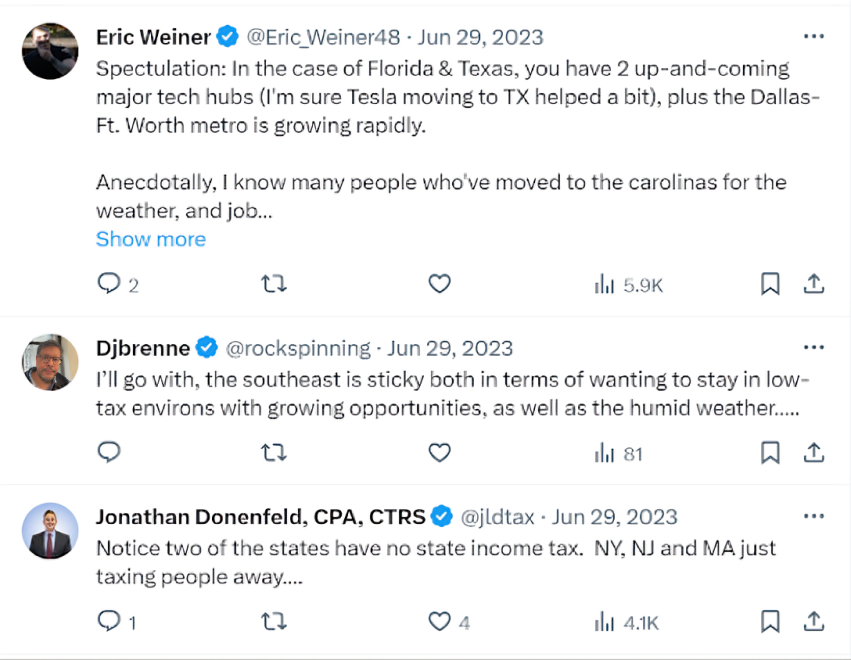
The Bloomberg article that Palihapitiya cited goes further into the issue. The article analyzes the recent trend of migration out of big cities into the South, citing data that 10 of 15 of the fastest growing cities in the United States are in the southeast corridor.
Data From Several Years Ago
The timeline of the data cited is important. The data in the article cited was from 2020-2021, which immediately affects the interpretation of the data. At the height of the pandemic, individuals who had lost their jobs or had their hours severely cut back were seeking ways to live less expensively, which often involved moving out of these more expensive cities in the northeast.
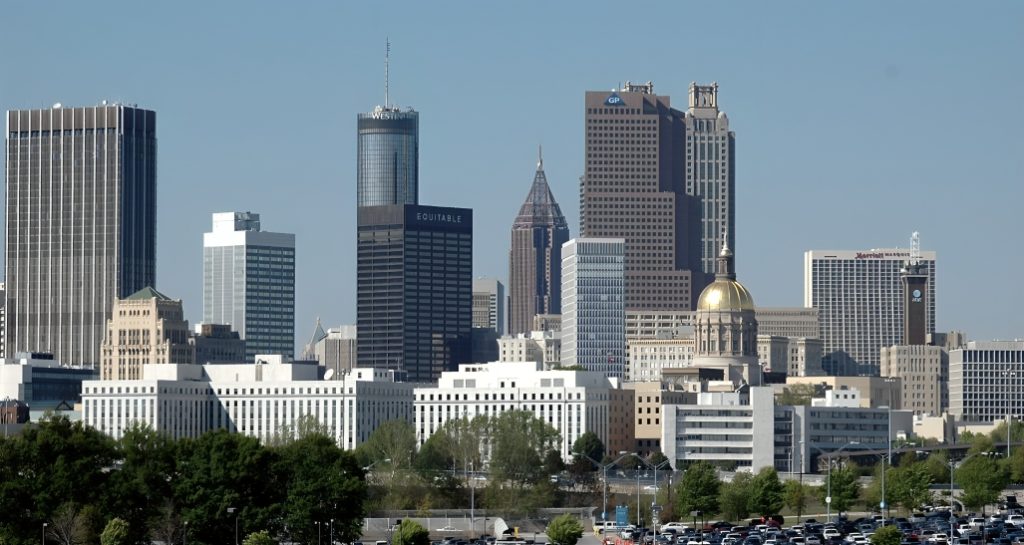
At the same time, there was a massive migration of different businesses all over the country. Many companies chose to move their headquarters to states in the South, due to cheaper cost of living and lower tax obligations. In this way, the Bloomberg article seems to imply that the flood of transplants to the South is more economic, rather than cultural.
Battle of the Billionaires
Likewise, some commenters on Palihapitiya’s tweet were less than convinced that there was, in fact, a cultural issue leading to the migration to the south. Mark Cuban, billionaire owner of the company Cost Plus Drugs, even went so far as to challenge Palihapitiya to list “woke” companies that had truly gone broke.
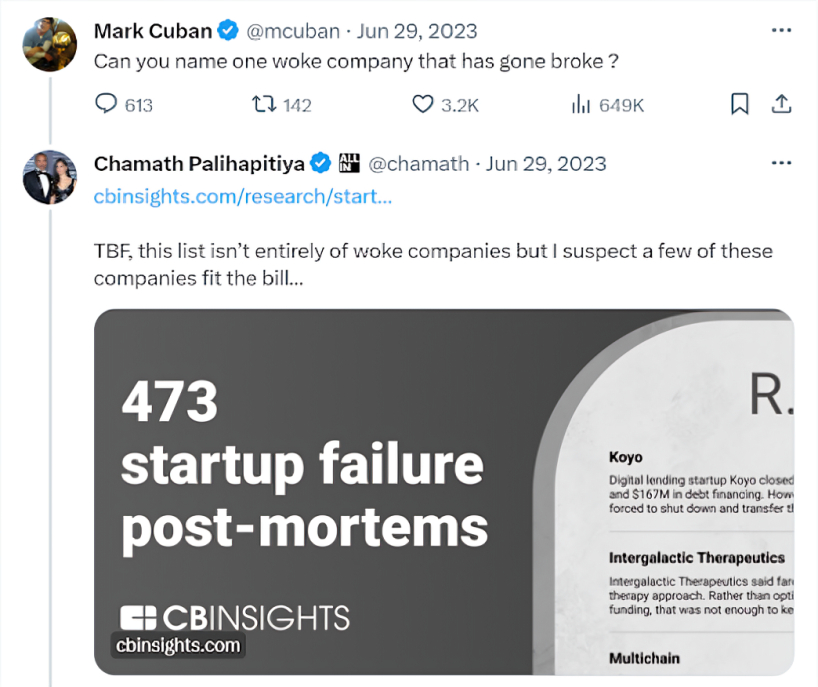
Palihapitiya responded by listing startups that had both begun and failed recently, with many of them basing out of California and other liberal states. Cuban was less than convinced, responding that listing only startups that failed is a weak argument, and Palihapitiya knows it.
No Consensus on Twitter
While Cuban and Palihapitiya didn’t come to a consensus on the open forum of Twitter, recent data seems to support Cuban’s assertion that the issue has little to do with culture wars. More recent data seems to reveal a slight reversal of the migration trend, suggesting that the majority of the issue stemmed from the pandemic.
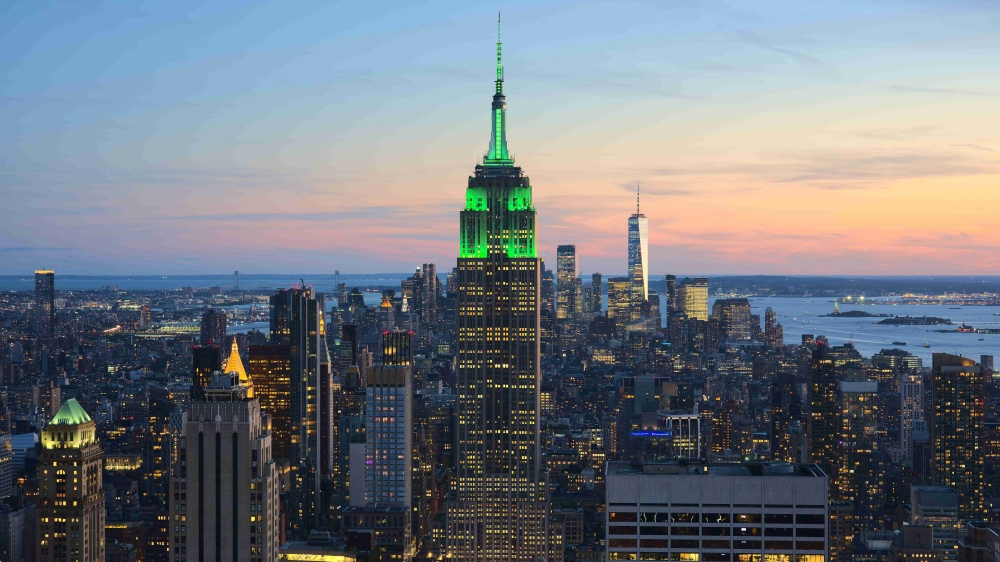
The massive migration to these southern states is having an effect on the low housing prices that made these states so attractive to begin with, too. Like every other market, when there’s increased competition for a limited stock, prices will start to rise in response to the demand. Housing in the south is no exception.
Exodus from Major Cities
Despite the fact that prices are higher now than they were at the lowest lows in 2020, states in the south still have fairly attractive cost of living levels. In Gainesville, Georgia, one of the hottest metro areas in the country in 2023, the median housing price still came in at a mere $375,000.
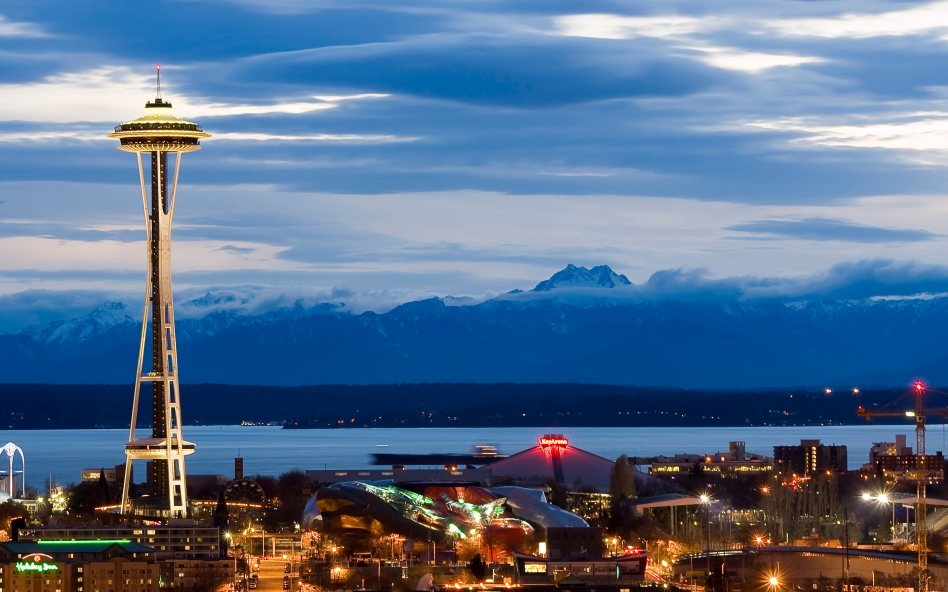
This is compared to markets like Seattle and San Francisco, where average housing prices were well over $750,000 to purchase a home. These are markets that are seeing the largest exodus of residents, and it will be interesting to see the effect that exiting residents will have on these inflated markets.
Is It Truly Culture Wars?
While it’s uncertain whether culture wars truly have anything to do with the migration out of expensive states, it cannot be denied that many people are seeking a more affordable cost of living. Cities like New York and Boston reached new highs in the years since the pandemic, and many people are feeling financially strapped.

Despite that, many are still making contented and fulfilled lives in various places around the country. The motivation for moving might be education, it might be the high cost of living, it might simply be because some people want a change of scenery. Regardless of what it is, we cannot judge our fellow Americans for doing their best to follow the American dream, though the data is fascinating to follow on the tail of it.

